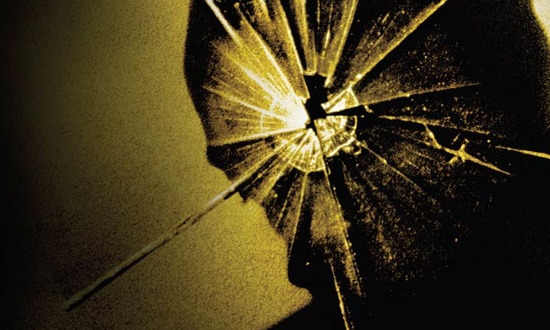In this excerpt from my novel Dominion, the elderly character Obadiah shares his life memories, including about the Old Negro League. Researching these players was both fascinating and inspiring. (Here’s a video with a brief history of the Negro Leagues.)
“What’s up?” Clarence asked, surprised to see Ollie at his door Saturday afternoon. “Something happen?”
“No. I’m here to see your father. I brought him my Hank Aaron autograph.” Ollie lifted up an old Milwaukee Braves program, Aaron’s autograph dark and prominent.
“Daddy?” Clarence knocked on his door. “Detective Chandler’s here.”
“Ollie? Is he now?” Clarence could hear the same sparkle in his father’s voice that animated his eyes. “Send him in. Send him in!”
“Hello, Mr. Abernathy. How are you?”
“Fine as frog’s hair, sir, fine as frog’s hair. Just taking my blood pressure.” He unfolded the arm wrap and put it down, then shook Ollie’s hand. “Don’t want to get in trouble with my doctor or my daughter-in-law.”
“I came to take you up on your offer,” Ollie said, “to see some of your old baseball pictures. Manny said I shouldn’t miss them.” Obadiah’s eyes lit up. “And I thought you might like to see this.” Ollie proudly handed him the Braves program.
“Well, I declare, son. It’s Henry’s signature all right.” Obadiah sat down on the bed gingerly, studying the program and naming other players he knew.
Clarence made a few phone calls. Then, he sat in the corner of the living room closest to his father’s open door.
“See these pictures?” he heard Obadiah say to Ollie. “It was blacks who made the first street sweepers, corn harvesters, fountain pens, clothes dryers, sugar refiners, typewriters, shoe makers, lemon squeezers, pencil sharpeners. Look at this.” Clarence knew his father was showing Ollie his picture book on black patents Clarence had gotten him last Christmas.
“I never knew all this,” Ollie said.
“Well, I’ll tell you one that ain’t in this book. You know who invented the first shin guards? A black catcher. White players was always spiking him, so he taped pieces of wood to his legs to protect them. Pretty soon all the catchers was doin’ it.”
“I love that picture of Jackie Robinson,” Ollie said. “Once he broke the color line, it wasn’t long before lots of other blacks came in, was it?”
“No sir, it wasn’t. All the teams learned real quick that if others was gonna do it, they better. You know ol’ Bear Bryant, when he was coachin’, he got asked why the University of Alabama was finally letting blacks on the team. Know what his answer was?”
“No,” Ollie said.
“To catch the ones on the other teams.” Obadiah and Ollie both laughed hard.
Clarence inspected his aquarium controls, then leaned back again and heard his father speaking. “We was sharecroppers in a bitty Mississippi town, so far down they had to pump in the sunshine. We built our little house after the old one burnt down. It was three years ’fore I could afford to get doorknobs and locks. Didn’t matter none. Nobody stole from you back then.
“But it seemed like them days some white folk would sooner strangle a colored man than talk to him—exceptin’ they’d have to touch him to do it. It was gettin’ worser and worser in some ways. Lots of folks still couldn’t get used to the idea we was somebody. Back when I was fightin’ that goosesteppin’ lunatic for my country, if you’d relied on them newspapers you’d have thought coloreds wasn’t born, ’cause the papers didn’t report it. You’d have thought we didn’t finish school, ’cause they never printed our honor rolls or graduations. You’d have thought we didn’t get married, ’cause papers didn’t print our wedding announcements or pictures of black brides and grooms cuttin’ cakes. You’d have thought coloreds didn’t die, ’cause they never announced our deaths or covered our funerals. Had to start black newspapers to do all that. After a while, a man gets tired of not bein’ treated like a person.”
“I can’t imagine what it must have been like,” Ollie said.
“Sharecroppin’ was a far cry better than slavery, but we still didn’t own the land and we didn’t get wages—just the promise of sharin’ profits. Well, promises get broken. One year Mr. Banks, the landowner, told me I wasn’t goin’ to get nothin’ ’cause he had to send his boy to college. I told him, I has to feed my chillens, so he give me just a little, and I believe he thought he was generous to do it. Decided then we had to leave.
“So in ’64 we moved on out for Chicago. Yessuh, Mr. Ollie, I could hear them train whistles blowin’ all the way from ol’ Miss. But too many of us heard the same whistles, I reckon. In twenty years after the big war, somethin’ like five million black folk moved from the South to the North. We thought the North was the promised land. We went up eager to work, many of us with cotton-balin’ hooks still in our pockets.
“Thing is, we was all farmers. Knew how to work the land hard, but not much else. Weren’t suited for the cities. My third-grade education wasn’t enough to get me a job at a bank! So work was in the plants and odd jobs and clean up. Well, the South broke its promises, and the North didn’t live up to its promise, and that’s just how it was.”
Clarence listened to the silence and wondered what would come next.
“Now, Ollie, maybe you notice some of our black folk just try to get by, to make do. You ask ’em what’s up and they say, ‘Jus’ tryin’ to survive, that’s all.’ Well, that comes from slavery and sharecroppin’. Lots of our folk didn’t have great dreams like white folk because most everybody told ’em the dreams wasn’t possible. Success was just makin’ it to the next day, just survivin’. See, your labor always went to somebody else. No matter how hard you worked or saved or planned, you could never be white, so lots of coloreds thought they could never succeed.”
“That must’ve been hard,” Ollie said. “But when you went up North, didn’t you find there was less prejudice?”
“Well, see, in the South, Negroes was always low, but white families was sometimes real fond of ’em. White chillens loved their colored mammies. Maids and gardeners could get close too. Even back in the old days some of them slaves lived in the big house, under the same roof as the massahs. But they always knowed their place, and if they forgot they got reminded real fast. Now when we moved up North, we saw blacks who’d worked their way up in businesses. They succeeded, got educated, had real nice homes. But blacks and whites never lived together; the neighborhoods was always separate. And they didn’t socialize. Kept their distance. In the South most whites knew some blacks, but in the North most didn’t. So you had more opportunity in the North, but not more relationships. Maybe less. The way I sees it, in the South, white folk didn’t care how close we got as long as we never got too high. But in the North, white folk didn’t care how high we got as long as we never got too close.”
Clarence tilted his head, straining to hear every word.
“I ain’t complainin’ now,” Obadiah said. “Never been one to whine and make excuses. But it’s hard for peoples to be motivated to self-improvement when all the benefit goes to someone else. It’s hard to pull yourself up by your bootstraps when you feel like somebody nailed your boots to the floor. That’s why the sharecroppin’ cabins of the South become the ghettos of the North. Well, nowadays the opportunity for black folks is here, opportunity I barely dreamed of. And lots of them has grabbed on and made somethin’ of their lives. But other folks is still in chains in their minds. My daddy used to say, ‘We’s a stolen people.’ When someone steals your property, that’s one thing. But when he steals you and turns you into property, it does something to a man that’s impossible for free folk to understand. It changes the way you look at yourself, and it gets passed on to your chillens and their chillens. See, when you’re a black man, you start thinking there’s nothin’ lower than you but the ground itself, and one day even that’s gonna be over you. So some folk just passes the time until they go to the ground or they start lookin’ to put other people under them. Well, Mr. Detective, what do you think of all this ol’ man’s ramblin’?”
“I think you’re a wise man, sir.”
“Well, that’s right kind of you, sir, ’cause the older I gets, the more days I has where not all my dogs is barkin’, if you follow me. I tell you what I learned when I went north, Ollie. I learned there’s no Promised Land in this world. I made the mistake of thinkin’ any place out of the South would be heaven. I was wrong. It wasn’t. Yessuh, the only train whistle that’s goin’ to take you to the Promised Land is the glory train. And when I hears that whistle, ol’ Obadiah Abernathy’s gonna get on board. I’m gonna make it to that Promised Land. But not till then.”
Obadiah laughed heartily and went straight into singing in his thin voice, “Git on board, little children, git on board. De gospel train’s acomin’, git on board.”
The phone rang. Clarence went to it, reluctantly breaking from his eavesdropping. When Clarence came back a few minutes later, the men were still in Obadiah’s room. He’d heard lots of laughing, but it was quiet now. He strained again to hear his father’s voice.
“So, that’s what Jesus said, Ollie. There’s just two places we can go. Heaven or hell. Every man’s gonna end up in one or t’other. It’s our choice. To accept Jesus is to accept heaven. To reject Jesus is to accept hell. All you has to do is confess your sins and bow your knees to Jesus and accept his dyin’ on the cross for you. Then you can knows when you dies you’ll go to heaven. How ’bout you, son? What choice you made?”
“I don’t think I’m ready to make a choice right now, Mr. Abernathy,” Ollie said. “But thanks for telling me this. I really do appreciate it.”
“Just one beggar tellin’ another beggar where to find bread,” Obadiah said. “That’s what my brother Moses always used to say. But don’t forget now, Mr. Ollie, you don’t never know how much longer you gots left to make that choice.”
Photo: Wikimedia Commons




